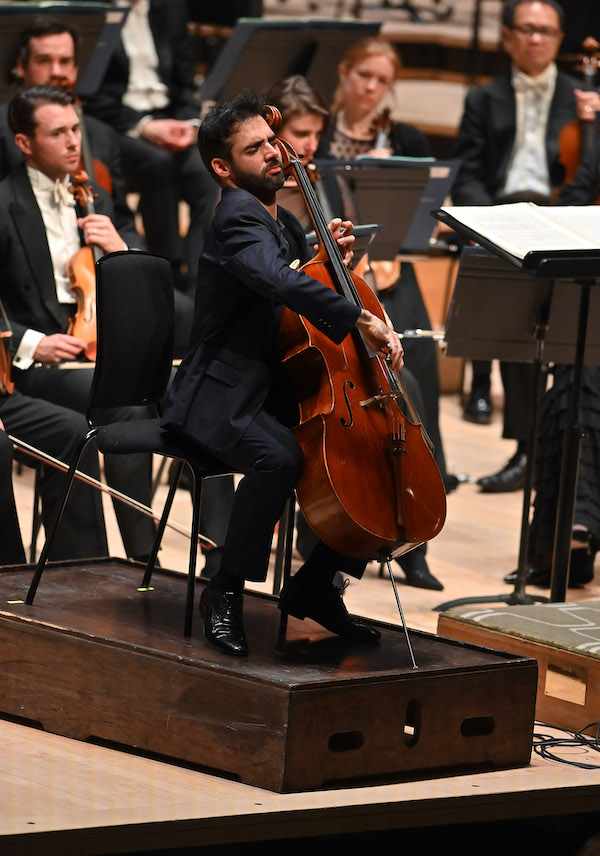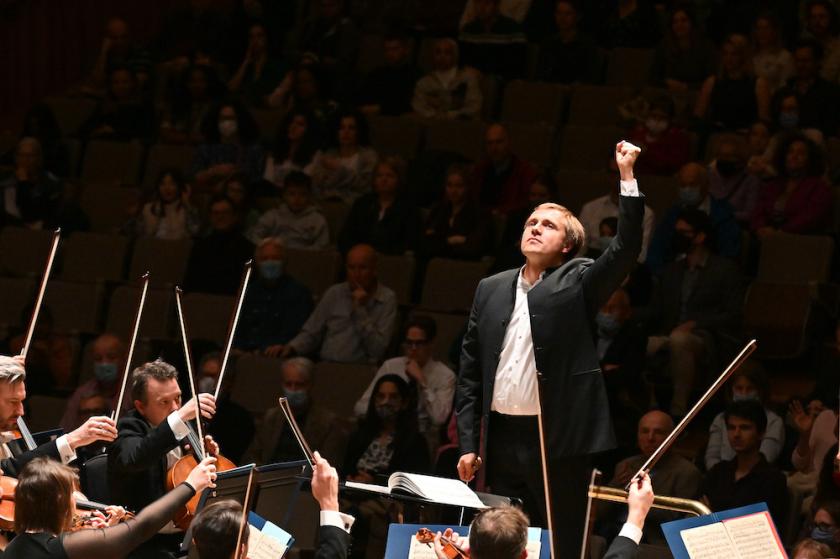This concert started with a heartfelt and moving speech from the Festival Hall podium by Vasily Petrenko, half-Ukrainian, brought up in St Petersburg. “What could I have done? What could we all have done? I have no answers.” The only answer he provided was music-making of driven intensity, ferocity alternating with anguished lyricism in Shostakovich's First Cello Concerto, testimony from a composer well acquainted with Russian oppression.
The soloist in the concerto was the youngish Spanish cellist Pablo Ferrández (pictured below), whose slightly brittle sound in the opening movement gave way to a slow lament that was truly pathetic – in the word’s older sense. A series of duets – with solo horn (Alexander Edmundson), with viola section, and with clarinet (Katherine Lacey) – were emotionally charged and wrenchingly sad. The cadenza was the heart of the piece – even of the whole evening, Ferrández holding the audience in rapt attention, building to an abandoned climax which dissolved into the final infernal dance.
 The concerto was flanked by two 20th century British classics from stormy political times: Britten’s Young Person’s Guide (1945) and Walton’s First Symphony (1934). The Britten is a surefire hit which saw Petrenko and the RPO clearly revelling in a return to a full string section and the end of social distancing within the orchestra. The violins packed a punch in their variation and the basses were delightfully nimble in theirs. The return of the original theme in the brass right at the end is one of the great spinetingling moments in all orchestral music and the orchestra didn’t disappoint.
The concerto was flanked by two 20th century British classics from stormy political times: Britten’s Young Person’s Guide (1945) and Walton’s First Symphony (1934). The Britten is a surefire hit which saw Petrenko and the RPO clearly revelling in a return to a full string section and the end of social distancing within the orchestra. The violins packed a punch in their variation and the basses were delightfully nimble in theirs. The return of the original theme in the brass right at the end is one of the great spinetingling moments in all orchestral music and the orchestra didn’t disappoint.
Neither did they in the Walton symphony after the interval. There is a nervous energy about the piece that I find irresistible and a constant sense that something big is about to happen. Those few moments when it actually does were delivered with rhetorical force and sheer weight of sound that was never forced or coarse. Timpanist Patrick King was heroic throughout, from the tentative roll that opens proceedings to the wild ecstatic end. The trombones too had real bite and the playing throughout was vibrant.
But unlike the Britten this was no lighthearted showpiece, but a carefully-shaped structure where the ardent finale was earned in the earlier malice and melancholy. Petrenko’s left hand was hypnotic to watch, shaping phrases, highly expressive and fluid. The players responded by giving it their all, thrillingly, elementally.













Add comment